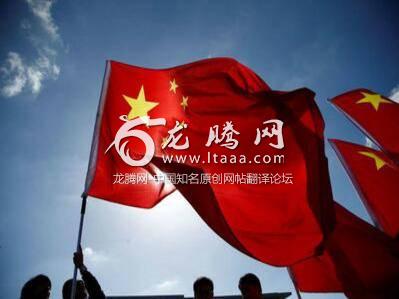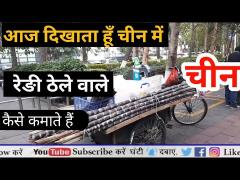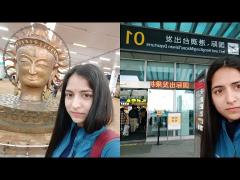【印度时报】中国的媒体战:不战而胜 [印度媒体]
自2003年后,中国为了“不战而胜”一直在寻求三管齐下政策,也就是“舆论战、心理战和法律战”。这就是所谓的“三战”。印度的战略家们相信,中国已经完全发展出了“三战”的概念,并且已将其应用于洞郎危机中。
China's media warfare: Winning without fighting
【印度时报】中国的媒体战:不战而胜
China's media is expected to influence opinion - domestically and internationally - in its favour. (Reuters Photo)
中国媒体将对国内外舆论产生有利影响。(路透社照片)
Post-2003, China has looked to a three-pronged strategy to "win without fighting" that comprises "media warfare, psychological warfare and legal warfare". This is called 'Three Warfares'.
自2003年后,中国为了“不战而胜”一直在寻求三管齐下政策,也就是“舆论战、心理战和法律战”。这就是所谓的“三战”
Indian strategists believe China has fully developed the concept of 'Three Warfares', and was "applying it to the Doklam crisis."
印度的战略家们相信,中国已经完全发展出了“三战”的概念,并且已将其应用于洞郎危机中。
Within the 'Three Warfares', media is expected to influence opinion - domestically and internationally - in favour of China. It is a way to dictate the narrative to benefit the Chinese position.
在“三战”中,媒体将会影响国内外的舆论,转而使人们支持中国。这是一种对中国立场有利的方法。
CHINESE MEDIA AND THE DOKLAM CRISIS
中国媒体和洞郎危机
Specifically, Chinese media warfare becomes increasingly important to understand, because of how visible it became during the recent crisis. Indian media ran report after report based on Chinese coverage of the Doklam crisis.
明确地讲,理解中国媒体战变得越来越重要,因为它在最近的危机中变得非常明显。印度媒体在报道了中国对洞郎危机的报道后,发表了一份报告。
Chinese media oscillated between threatening India, painting India as the aggressor, and portraying China as simply a defender of its territorial sovereignty.
中国媒体不断地威胁印度,把印度形容成侵略者,并把中国描绘成只是一个领土主权的捍卫者。
For example: During the stand-off, the Chinese government warned India that it should learn from "historical lessons", in an indirect reference to the 1962 war that the latter lost. Defence Minister Arun Jaitley retorted, "The situation in 1962 was different and India of 2017 is different."
比如:在对峙期间,中国警告印度,应该从“历史”中吸取教训,这是间接提出了后者在1962年的战争中的失败。国防部长Arun Jaitley反驳道:“2017年的印度与1962年的印度完全不同。”
This led to angry Chinese media weighing in, via an editorial in state-run Global Times, threatening India with "greater losses than in 1962". The editorial demanded that India be taught "a bitter lesson".
这让愤怒的中国媒体,通过官方媒体环球时报的一篇社论,用“比1962年更大的失败”来威胁印度。这篇社论要求印度接受“惨痛的教训”。
Such aggressive rhetoric may be aimed at beating hostile countries into submission, an attempt to get them to toe Beijing's line.
这种咄咄逼人的言辞可能是为了惊动敌国并使之屈服在北京一方。
SHOULD INDIA BE LISTENING?
印度该听进去吗?
Is India giving excessive importance to our neighbour's media? According to Dr Alka Acharya, former Director, Institute of Chinese Studies, and Professor at Centre for East Asian Studies, JNU, we need to adopt a more nuanced and sophisticated way to pick up and leave out information - it is necessary to take more note of publications, opinion makers and scholars close to the Chinese government.
印度对我们邻国的媒体过分担忧了吗?根据Alka Acharya博士(贾瓦哈拉尔·尼赫鲁大学、中国研究所前任主管、东亚研究中心教授)的说法,我们需要采取更巧妙和更复杂的方法去收集信息,有必要对有关中国的出版物、舆论家和学者多加注意。
"We should be taking government- and party-controlled publications seriously. For instance, a publication like Global Times should be paid attention to, to understand the hawks in China. While it should not be considered sacrosanct, it is important to understand the dynamics and strains of the Communist Party of China," she says.
“我们应该对政府和党控制的出版物谨慎对待。例如,像环球时报这样的出版物应该要被多加关注,以了解中国的鹰派。虽然它不应该被奉为圭臬,但理解中国的动态和紧张是很重要的。”她说道。
CHINESE MEDIA: CREDIBILITY IN THE FACE OF CENSORSHIP
中国媒体:面对审查制度的公信力
The influence exerted by Chinese media will remain directly connected to perceptions of its credibility. This is especially important to remember as the country looks to play a bigger role in international media - albeit with censorship firmly in place.
中国媒体的影响力仍将直接与人们对其可信度的看法相关联。这一点尤为重要,因为中国想要在国际媒体上发挥更大的作用——尽管有严格的审查制度。
A 2013 survey by Joseph Weber & Linjun Fan, published in Human Rights Quarterly, brings forth some interesting findings about the perception journalism students in China hold about domestic and foreign media.
2013年在人权季刊上发表了一份由约瑟夫·韦伯和范林军的调查,提到了一些有趣的发现,是关于中国的新闻专业的学生对国内外媒体的看法。
The thirty-nine question survey was conducted anonymously at eight Chinese universities.
在中国的8所大学里的39个问题的匿名调查。
In two separate questions, respondents were asked how true and accurate they thought news in Chinese state-owned media and foreign media was.
在两个毫不相干的问题中,受访者被问及他们认为中国国有媒体的新闻和外国媒体的新闻的真实性和准确性时。
Only 54 of the 111 respondents (48.7 percent), said they "believed most of what they read or saw in Chinese state-owned media".
在111名受访者中,只有54人(48.7%)表示,他们“相信在中国国有媒体上读到的或看到的大部分内容”
On the other hand, 85 respondents (76.6 percent) "believed most of what they read or saw in Western-owned media".
在另一方面,有85名受访者(76.6%)“相信在西方媒体上读到或看到的东西”。
Respondents were also asked whether they believed "more is true in foreign media than in Chinese state-owned media, more is true in Chinese state-owned media than in foreign media, or both are equally true."
受访者还被问及他们是相信“外国媒体比中国国有媒体更真实,还是中国国有媒体比外国媒体更真实,或者两者都是一样的。”
Ten of 110 (9.1 percent) put their faith in Chinese state-owned media; fifty-four (49 percent) said more is true in foreign media. Forty-six respondents (41.8 percent) found both to be equally true.
110人中只有10人(9.1%)对中国国有媒体抱有信心;有54人(49%)认为外国媒体的报道更加真实。有46名受访者(41.8%)相信两者都是一样的。
The views of this small sample audience is amplified around the world - discussions and commentaries on the credibility of Chinese media are not unheard of. It is accepted that the government and the Communist Party of China exert more than a little control on state-run media, and this often dictates the content that populates these publications and the tone they take.
这种小样本的观点在世界范围内得到了放大——关于中国媒体可信度的讨论和观点并非闻所未闻。人们普遍认为,中国对国有媒体施加的控制并不多,而这往往决定了这些出版物的内容以及它们所采取的语气。
版权声明
我们致力于传递世界各地老百姓最真实、最直接、最详尽的对中国的看法
【版权与免责声明】如发现内容存在版权问题,烦请提供相关信息发邮件,
我们将及时沟通与处理。本站内容除非来源注明五毛网,否则均为网友转载,涉及言论、版权与本站无关。
本文仅代表作者观点,不代表本站立场。
本文来自网络,如有侵权及时联系本网站。
图文文章RECOMMEND
热门文章HOT NEWS
-
1
चाइना में रेडी और ठेले Local shops in china || L...
- 2
- 3
- 4
- 5
- 6
- 7
- 8
- 9
- 10
推荐文章HOT NEWS
-
1
चाइना में रेडी और ठेले Local shops in china || L...
- 2
- 3
- 4
- 5
- 6
- 7
- 8
- 9
- 10











